Description: War Thunder is a next generation military MMO game dedicated to...


The deja vu effect is still not fully understood. Doctors, psychologists, esotericists, magicians and sorcerers, religious scholars are trying to explain this phenomenon. The increased interest of people of various professions has led to the birth of several hypotheses. Why does deja vu effect? Can you use it to your advantage? Can it be controlled?
Many people have experienced this feeling. Some sources call the figure 97%. It is not surprising that there are a lot of myths and assumptions around the phenomenon.
The word "déjà vu" came to us from French. True, there it is written separately. In dictionaries and encyclopedias, the term is explained as follows:
“Deja vu (from the French “already seen”) is a psychological state of a person in which he feels that he has already been in a similar situation, been in this place, seen certain objects.”
Imagine: You arrive or arrive in a completely unfamiliar place. But! You are haunted by the feeling that you have been here before. You've seen it, you've smelled it, you've talked to these people. Some can even tell exactly what is behind them. Or what is behind the door on the left.
All this knowledge appears at the level of sensations. Memory does not tell when this situation has already happened. When you arrived at this place. Moreover, such a situation may never have happened. But the feeling of "acquaintance" does not leave. When it passes, only confusion remains.
Do not confuse deja vu with simple forgetfulness or painful memory disorders. FROM deja vu man encounters regardless of circumstances, time and place. It is impossible to establish periods, to notice any regularity.
Forgetfulness haunts a person for a certain period. It manifests itself not only in the sensations of something familiar, but also in other everyday trifles. We don’t remember where they put the keys, glasses, turned off the stove, and so on. Serious memory problems are the domain of psychotherapists and neurologists. Sometimes in the mind of a person there is a past and present. Sometimes a whole period of life falls out altogether. It's already amnesia.
Foresight, premonition is the recognition of a future event in advance. At the level of intuition, consciousness. Some see clear visual images of things to come. For others, the near and distant future comes in dreams. For still others, knowledge appears in the form of a simple instinctive reaction. The event did not happen, but the person felt or saw it. With deja vu, it’s different: something happened, and the person felt something familiar. He "recognized" a place, phenomenon, conversation, etc., new to his memory.
For the first time the term "déjà vu" is found in the works of the French psychologist Emile Buarak. He worked at the turn of the nineteenth and twentieth centuries. Émile Boirac used this word to denote the feeling of the unreality of what is happening. A strange feeling was accompanied by anxiety, a perception of oneself as if from the outside.
Almost simultaneously, other phenomena were discovered:
The opposite term for deja vu is jamevu. Its literal translation is "never seen". Being in a familiar, well-known environment next to familiar people, a person feels novelty. As if he had not been here, he did not know these people.
All these phenomena were discovered already at the end of the nineteenth century. And they did not meet in isolated cases. The events were massive. But it is very difficult to study them in detail, to apply scientific methods. The main reason is the unpredictability of manifestations of phenomena. It is impossible to know exactly when women started to shave their legs and when the feeling of "fame" in an unknown place will appear. Since it became impossible to explain the occurrence of deja vu with the help of science, various hypotheses and assumptions were built. Some of them are highly dubious. Although... Who knows where the seed of truth is buried.
Hypotheses regarding the occurrence of deja vu:
1) Multiple transmigration of souls.
From time immemorial (namely, from ancient times) people believed in "past lives". Each nation even had its own traditions of burial of the dead. All rituals and actions are aimed at achieving one single goal: to allow the soul of the deceased to leave the body, and then return to earth in a new guise, in a new physical body.
According to this theory, deja vu is nothing more than remembering a fragment from a previous life. Echoes of the hypothesis can be found in the writings of Pythagoras. Plato went even further. Believing in the immortality of the soul, he argued that before entering the physical body, the spiritual principle contemplates the world, phenomena, people, places. The soul not only sees and hears everything, it also analyzes, evaluates, draws conclusions. Already in the body, the soul "remembers its past thoughts." This is how the process of cognition of reality takes place. It is not surprising that a person feels "familiar" at certain points in his life.
Carl Gustav Jung adhered to the theory of the transmigration of souls in his writings. A famous Swiss psychologist active in the early twentieth century believed that he himself worked as a physician in the eighteenth century.
The hypothesis is, of course, interesting and very simple. There is no confusion about feeling famous in a new place. But ... If deja vu appeared at the time when you visited a trendy club. Or while working on the computer. Or during a conversation with a friend in sunglasses and ripped jeans. Were there the same places and the same things a hundred years ago? Don't the objects around us change from century to century?
2) Prophetic dreams.
For the first time about communication deja vu phenomenon Arthur Allin, an American psychologist of the late 19th century, spoke with prophetic dreams. Since then, this theory has only supporters. Opponents are stopped by the unprovability of the opposite. Indeed, it is very difficult to refute the connection between deja vu and a prophetic dream. But not everyone sees upcoming events and meetings in their dreams.
3) Subconscious fantasies.
When it comes to the conscious and the unconscious (subconscious), one involuntarily recalls Sigmund Freud. And before him, ideas about the unconscious arose in philosophical minds. But experimentally, these concepts were developed precisely by an Austrian psychologist.
He and his supporters explained deja vu as follows: in the subconscious there are certain fantasies, images, ideas; when they coincide with ongoing events, there is a sense of recognition.

AT modern world there is also a scatter of opinions and hypotheses regarding deja vu.
1) Violation of such perception processes as memorization and recall.
Normally, these two processes should work together. But sometimes one of them "turns off". The other in his absence is activated independently.
How does a person perceive new information? The brain tries to correlate the impressions it receives with similar familiar ones. That is, those who this moment are in a person's memory. This is a remembrance. At the same time, the brain remembers the received information.
If there is no recall? The brain cannot find similar information. There is a false sense of recall. The brain passes off the new as the familiar.
One more moment. Memorization always follows perception. They saw, touched, smelled, tasted, heard - remembered. If a temporary failure occurs, then these processes are superimposed. There is an illusion of remembering the new, deja vu.
2) “Incorrect” information transfer rate.
Neurophysiologists believe that deja vu appears when the perceiving organ transmits the received information faster, and the brain processes it faster. As a result, the new is perceived as well known. This can happen after a good rest.
3) Visual data transfer failure.
We have two eyes. Accordingly, there are two ways of delivering visual information to the brain. It is delivered almost at the same time. If one signal is delayed by milliseconds, then it will not be new for the brain.
4) The source of information has been forgotten.
Every day, every hour and every minute, our brain perceives a lot of information. He does not always consider it necessary to connect consciousness. We simply “smeared” the subject with our eye, accidentally heard a snippet of a phrase, and the brain has already received this information, processed and stored it. We don't even notice how it all happens. These impressions “ignored” by consciousness are the basis of deja vu.
Typical examples.
We were visiting, looking at photos of the hosts. Family, friendly. There were faces in the background. And then we get acquainted with these randomly captured faces. And we can’t remember in any way: where have I seen him before?
In some book read a description of a medieval castle. The action of a movie took place on a certain street of a certain city. Only individual details are visible, elements that are completely unimportant for understanding the plot. Let's get to that place real life- there is deja vu.
5) Recognition of a familiar object.
In a new environment, we can see a familiar object, smell a familiar smell, hear a familiar sound. Consciousness may not notice this. But the brain speeds up the processing of new information. And the consciousness is not able to isolate the stimulus for this. There is deja vu.
6) Time offset.
This is an esoteric hypothesis. No time. This concept is vague and relative. If we easily remember the past. Why can't we remember the future in the same way?! What will happen in a few seconds. The flow of time is one. Perhaps there is access to it from both ends?!
There is another, very beautiful explanation of the deja vu phenomenon. Everyone from birth has his own destiny, his own line of life. For each specific person, certain circumstances, certain people, work, meetings, places are ideal. This ideal life line is known to our subconscious. When deja vu appears, our life path intersects with someone prescribed by an ideal trajectory for us. Therefore, we are on the right track.
Modern scientists consider the deja vu effect to be one of the most difficult to explain and most mysterious phenomena.
Modern scientists consider the deja vu effect to be one of the most difficult to explain and most mysterious phenomena. Its occurrence is always unexpected, and the duration is only a couple of seconds. Anyone who is in a state of deja vu perceives the situation or action that is happening at the moment as having already seen or experienced it before. For example, it may be an unfamiliar place that suddenly seems familiar. Or events and actions in which a person can foresee and name in advance his future words, movements or movements of other people.
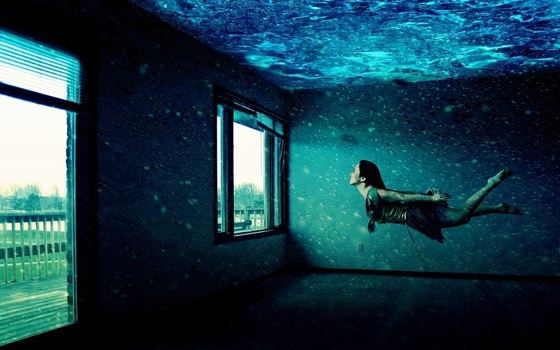
The effect was named after French word"déjà vu", which literally means "already seen". This phenomenon has been studied for centuries. Aristotle attributed deja vu to a special mental state that occurs when certain factors influence the psychological state of a person. Concrete studies of the déjà vu effect began in the 19th century by Émile Bouarac. He studied this condition, and a number of others similar to it.
• Short-term disorder of connected channels between consciousness and the unconscious. The subconscious contains many unconscious things, thoughts, images, experiences, etc. This is everything that for some reason was forced out of consciousness. Deja vu occurs when in real life there is a coincidence with unconscious images.
• Dreams coincide with reality. In a dream, the brain models various situations that turn out to be very close to reality. Sometimes such situations partially coincide with the images in reality, and the person feels deja vu.
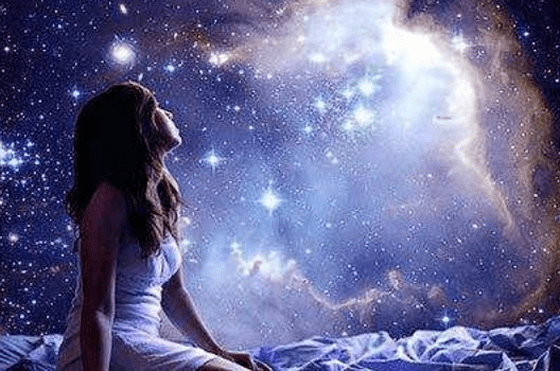
• Simultaneous triggering of memorization and recall. Receiving new knowledge, the brain compares the information with the one that is already in the head (the “I know - I don’t know” principle) and then writes it down. At some point, a failure occurs and it turns out that new information is simultaneously subjected to both writing and reading. The brain perceives it as already existing in its memory and, as a result, appears feeling of deja vu. It was found that one of the causes of such a failure may be a different speed of visual information for each eye.
• Deja vu is a real memory. The character of Shurik from the famous comedy is very appropriate here. Every day we can skip a lot of things past our consciousness, but the brain is constantly receiving information and processing it, and then putting it into the subconscious. And then, when we encounter this recorded thing already in a conscious state, deja vu may occur.
• Hypotheses of a fantastic and esoteric nature. People inclined to such hypotheses claim that this is a memory of past lives, that time can be curved, that these are connections with some kind of parallel worlds, etc.
The phenomenon of deja vu is one of the strangest and most unexplored human abilities.

As little as possible, give the load on the eyes, give up the TV and computer. If it is known for sure that deja vu is associated with overwork, then in no case should it be ignored, but urgently consult a doctor. Inaction can lead to decreased attention, visual and auditory hallucinations. Another cause of annoying deja vu can be emotional wounds. In this case, it is better to work everything out with a psychologist. The editors of uznayvse.ru hope that in our article you have found comprehensive information about what deja vu is.
- this is a special state of the psyche, in which the individual feels as if everything that happens is familiar to him - as if he had already been in this situation. At the same time, such a feeling is not associated with a specific moment in the past, but simply gives the impression of something already familiar. This is a fairly common occurrence and many people want to know why the déjà vu effect occurs. We will consider the versions of scientists in this article.
The state of deja vu is reminiscent of watching a movie that you saw so long ago that you no longer remember when it happened, under any circumstances, and you only recognize individual motives. Some people even try to remember what will happen in the next moment, but they fail. But as soon as events begin to develop, a person realizes that he knew that everything would continue in this way. As a result, it seems as if you knew the entire sequence of events in advance.
Scientists put forward different hypotheses as to what the déjà vu effect actually is. There is a version that the brain can change the way time is coded. AT this case time is simultaneously encoded as "present" and "past". Because of this, there is a certain temporary separation from reality and the feeling that it has already happened.
Another version - deja vu is caused by the unconscious processing of information in a dream. That is, in fact, a person experiencing deja vu recalls a similar situation that he once dreamed of and was very close to reality.
The reverse effect of deja vu: jamevuJamevu is a term derived from the French phrase "Jamais vu", which translates as "never seen". This is a state that is the opposite of deja vu in its essence. In its course, a person suddenly feels that a well-known place, phenomenon or person seems unfamiliar, new, unexpected. It seems that knowledge has disappeared from memory.
This phenomenon is very rare, but often recurring. Doctors are sure that this is a symptom of a mental disorder - epilepsy, schizophrenia or organic senile psychosis.
Why does the deja vu effect appear often?Studies show that in the modern world, 97% of healthy people have experienced this effect at least once in their lives. It happens much more often with those who suffer from epilepsy. It is also interesting that so far it has not been possible to cause the effect of deja vu by artificial means.
Usually a person experiences deja vu quite rarely - this makes it difficult to study this phenomenon. Currently, scientists are trying to find out why patients and some individuals healthy people they experience this several times a year, or even a month, but so far the answer has not been found.
Deja vu effect: reasons according to A. KurganIn the modern work “The Phenomenon of Deja Vu” by Andrey Kurgan, one can see the conclusions that, in fact, the cause of the experience can be called an unusual layering of two situations at once: one of them took place and was experienced in the past, and the other is experienced in the present.
Such layering has its own conditions: it is necessary to change the structure of time, in which the future is imprinted in the present, because of which a person can see his existential project. In the course of this process, the future is stretched, accommodating the past, the present, and the future itself.
It is worth noting that at the moment, none of the versions has been recognized as official, since this elusive phenomenon is quite difficult to study, classify and parse. Besides, there are still people. Who have never experienced deja vu, so the question of its true prevalence remains open.
A large number of specialists are studying the question of why the deja vu effect occurs. Numerous versions are based on the opinion that this false memory provokes malfunctions in the brain. Each of the scientific disciplines explains the cause and mechanism of these failures in its own way.
This term is based on the French expression "déjà vu", which in translation sounds like "already seen." This state is manifested by a clear understanding that the surrounding circumstances or ongoing events have already happened before, although you are sure that nothing like this has happened before. You can find out stranger, to remember a room in which they have never been or a book that they have not read before.
A characteristic feature is the absence of an exact date of the event in the past with which the memories are associated. That is, you know for sure that it has already happened, but you cannot remember exactly when. Such a feeling does not last long, as a rule, a few seconds, and sometimes a person only after a few minutes realizes what happened to him.
The first person to ask why deja vu occurs was a psychologist from France, Emile Bouarac. Subsequently, representatives of such fields of science as psychiatry, biology, physiology, and parapsychology joined the study of this topic. Adepts of the occult disciplines were no less interested in this phenomenon.
The main difficulty lies in the fact that all the processes that provoke and control false memories occur in the brain and any intervention can lead to negative changes in the work and structure of this organ.
Researchers from the University of Massachusetts claim that the phenomenon of false memories originates in the temporal region of the brain, which is called the hippocampus.
This assumption is based on the main opinion modern physiologists about why there is a feeling of deja vu. The function of the hippocampus is to compare and compare new and existing information in the human memory. It is this part of the brain that allows you to distinguish and compare events that occurred in the past and in the present.
For example, a person sees a book in front of him for the first time. The hippocampus analyzes information by comparing it with data that exists in memory. With the normal functionality of the brain, a person understands that he had not come across this book before.
If the hippocampus fails, then the information seen immediately enters the memory center without being analyzed. After a second or two, the failure is eliminated and the hippocampus re-processes the information. Turning to the memory center, where there is already data about the book, the temporal lobe informs the person that this printed edition already met them before. Thus, false memories arise.
According to scientists, the reasons for such failures can be:
The American scientist Burnham refutes this statement. He believes that this state develops when a person is completely relaxed and free from thoughts, experiences, anxieties. At such moments, the subconscious mind begins to work faster and anticipate the moments that will happen in the future.
Psychologists believe that the emergence of erroneous memories is a defense mechanism. human body. Getting into an unfamiliar situation, a person experiences stress. To avoid this, he begins to look for some elements or circumstances that are familiar to him. Not finding the necessary information in the memory, the brain invents it.
Some psychiatrists believe that this condition is a symptom of a mental disorder. In addition to deja vu, such patients suffer from other memory disorders. If left untreated, false memories develop into dangerous and prolonged hallucinations, under the influence of which the patient can harm both himself and those around him.
Known for his work in psychiatry, Sigmund Freud believed that deja vu is a previously experienced real situation, the memories of which were “hidden”. For example, you watched a movie that caused unpleasant or traumatic situations. To protect you, the brain "moved" information about this event into the subconscious. Then, under the influence of various factors, the image comes out.
There is another theory from the field of metaphysics. According to this philosophical doctrine, a person simultaneously exists in the past, present and future. These planes never intersect with each other and in a conscious state people perceive only the present time. Memories of what was not arise when, due to failures, the intersection of these parallel dimensions occurs.
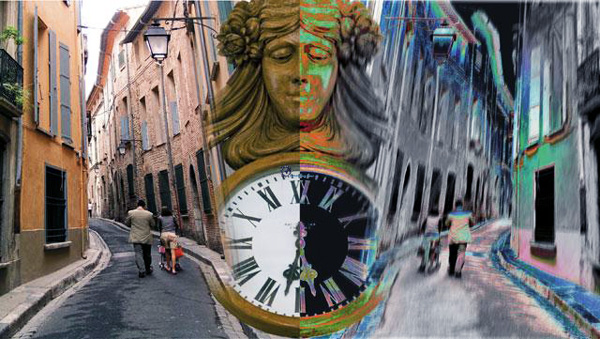
A simpler and more popular opinion among the people defines this state as a remembered dream that was dreamed earlier. The person does not remember that there was such a dream, but data about it exist in the subconscious. People who believe in the transmigration of the soul believe that in a previous reincarnation they already experienced this situation.
Most often, they remember what was not, doctors of sciences and people with a high level of intelligence. Other Interesting Facts and theories are presented in this video.
According to statistics, about 97% of people have experienced this phenomenon. Experts recommend that those who have experienced this condition for the first time not to give in to anxiety. At the same time, with frequently recurring phenomena, it does not hurt to consult a psychologist or other specialist in this field.
In contact with
Surely, everyone knows such moments when it seems that a certain event has already happened, or we meet a person whom we have already seen. But here's how it happened and under what circumstances, alas, no one can remember. In this article we will try to figure out why it happens. Are these games that the mind started with us, or some kind of mysticism? How do scientists explain this phenomenon? Why does deja vu happen? Let's consider everything in more detail.
Verbatim this concept translates as "previously seen". For the first time this term was used by Emile Buarak - a psychologist from France. In his work “Psychology of the Future”, the author raised and voiced such moments that researchers had not dared to describe before. After all, no one knew exactly what deja vu is and why it happens. And since there is no logical explanation for this, how can one touch on such a sensitive topic? It was this psychologist who first called the effect the term "déjà vu". Before that, such definitions as “paramnesia”, “promnesia”, which meant “already experienced”, “previously seen”, were used.
The question of why déjà vu arises remains mysterious to this day and is not fully disclosed, although, of course, there are several hypotheses.

American scientists have conducted several studies to find out how the déjà vu effect occurs. They found that the hippocampus, a specific part of the brain, is responsible for its appearance. After all, it contains specific proteins that enable us to instantly recognize images. In the course of this study, scientists even determined what structure the cells of this part of the brain have. It turns out that as soon as we get to a new place or pay attention to the face of a person, all this information immediately “pops up” in the hippocampus. Where did she come from? Scientists say that its cells create in advance the so-called "cast" of any unfamiliar place or face. It looks like a projection. What happens? Does the human brain program everything in advance? 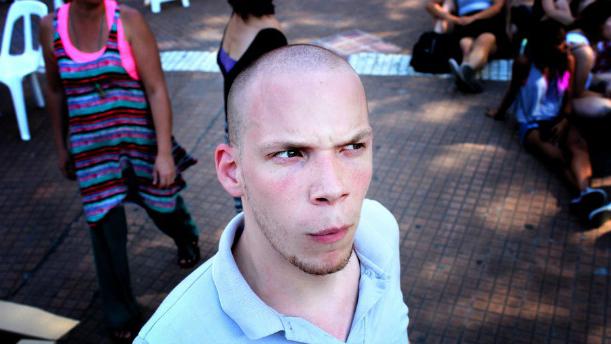
To better understand what in question, let's find out how scientists in conducted research. So, they selected several subjects, provided them with photographs of famous personalities from different areas activities, famous people, various attractions that are known to everyone.
After that, the subjects were asked to voice the names of the places depicted and the names or names of people. At the moment when they gave their answers, scientists measured their brain activity. It turned out that the hippocampus (we talked about it above) was in a state of full activity even in those respondents who did not even approximately know the correct answer. At the end of the whole event, people said that when they looked at the image and realized that this person or place was unfamiliar to them, certain associations appeared in their minds with what they had already seen before. As a result of this experiment, scientists decided that if the brain is capable of additional associations of known situations with completely unfamiliar situations, then this is the explanation for the deja vu effect.
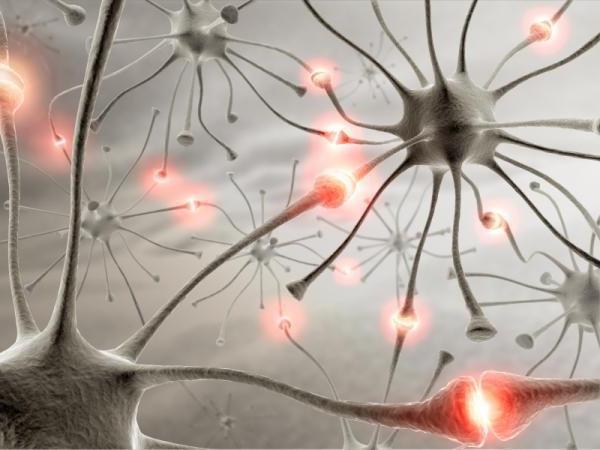
As we have already said, there are several versions about what deja vu is and why it happens. According to this hypothesis, the effect refers to manifestations of the so-called false memory. If during the work of the brain there are failures in certain areas of it, it begins to take everything unknown for what is already known. According to experts, false memory does not "work" at any age, it is characterized by certain peaks of activity - from 16 to 18 years, and also from 35 to 40.
Scientists explain the first peak of false memory activity by the fact that adolescence is very emotionally expressed in all respects. People at this time react quite dramatically and sharply to current events. The lack of great life experience also plays an important role in why deja vu occurs. This is a kind of compensation, a hint. The effect is manifested when a teenager needs help. In this case, the brain "refers" to a false memory. 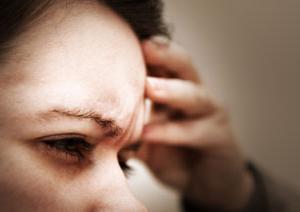
The second peak falls just on This is a turning point in a person's life, when one feels nostalgia for the past, there are certain regrets or a desire to return to past years. Here the brain again comes to the rescue, turns to experience. And this gives us an answer to the question: “Why does deja vu happen?”.
It must be said that this hypothesis is significantly different from the previous ones. Doctors do not doubt for a second that the meaning of deja vu cannot be ignored, because it is a mental disorder. And the more often the effect is manifested, the more serious the situation is. They argue that over time this will develop into long-term hallucinations, dangerous both for the person himself and for his environment. Doctors after the research have noticed that this phenomenon occurs mainly in people suffering from all kinds of memory defects. Parapsychologists do not exclude another version. So, they tend to associate deja vu with the reincarnation of a person after death into another body). Naturally, modern science does not accept this version.
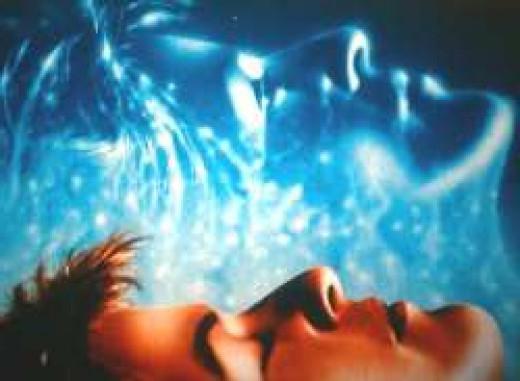
For example, in the 19th century, German psychologists explained the effect in an elementary way, as a result of simple fatigue. The thing is that those parts of the brain that are responsible for consciousness and perception, that is, there is a failure among themselves. And it is expressed in the form of a deja vu effect.
The American physiologist Burnham argued the opposite. So, he believed that the phenomenon in which we recognize certain objects, actions, faces, is associated with the complete relaxation of the body. When a person is fully rested, his brain is free from difficulties, experiences, thrills. It is at this time that the brain can perceive everything many times faster. It turns out that the subconscious is already experiencing moments that may happen to a person in the future.
Many people believe that they know how deja vu occurs, believing that this is the result of dreams that we once had. It is hard to say whether this is true or not, but such an idea exists among scientists as well. The subconscious mind is able to capture dreams that we had even many years ago, and then reproduce them in parts (many consider this as a prediction of the future).
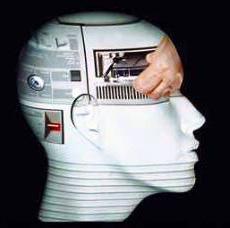
To better understand what deja vu is, let's remember the film about Shurik, when he was so absorbed in reading the synopsis that he did not notice either his presence in someone else's apartment, or mustard cakes, or a fan, or Lida's girlfriend herself. But when he appeared there already consciously, he experienced what we call the deja vu effect. It's just that in this case, the viewer knows that Shurik has already been here.
Sigmund Freud at one time described this state as a real memory that was "erased" in the mind under the influence of various adverse factors. It could be trauma or experience. Some force forced a certain image to move into the subconscious, and later there comes a moment at which this “hidden” image suddenly comes out.
Jung, on the other hand, associated the effect with, in fact, with the memory of our ancestors. And this again brings us to biology, reincarnation and other other hypotheses.
It turns out, not in vain they say that everything in the world is interconnected. Maybe in this case it also does not make sense to look for the only correct answer, if only because there is no guarantee that it exists? After all, it is not for nothing that even scientists have not put forward the version that could be fully proved and declared to the whole world that the answer has been found.
In any case, do not be afraid if this effect happens to you. Take it as a hint, as something close to intuition. Remember the main thing: if there was something frightening or really dangerous in the phenomenon, you would already know about it for sure.